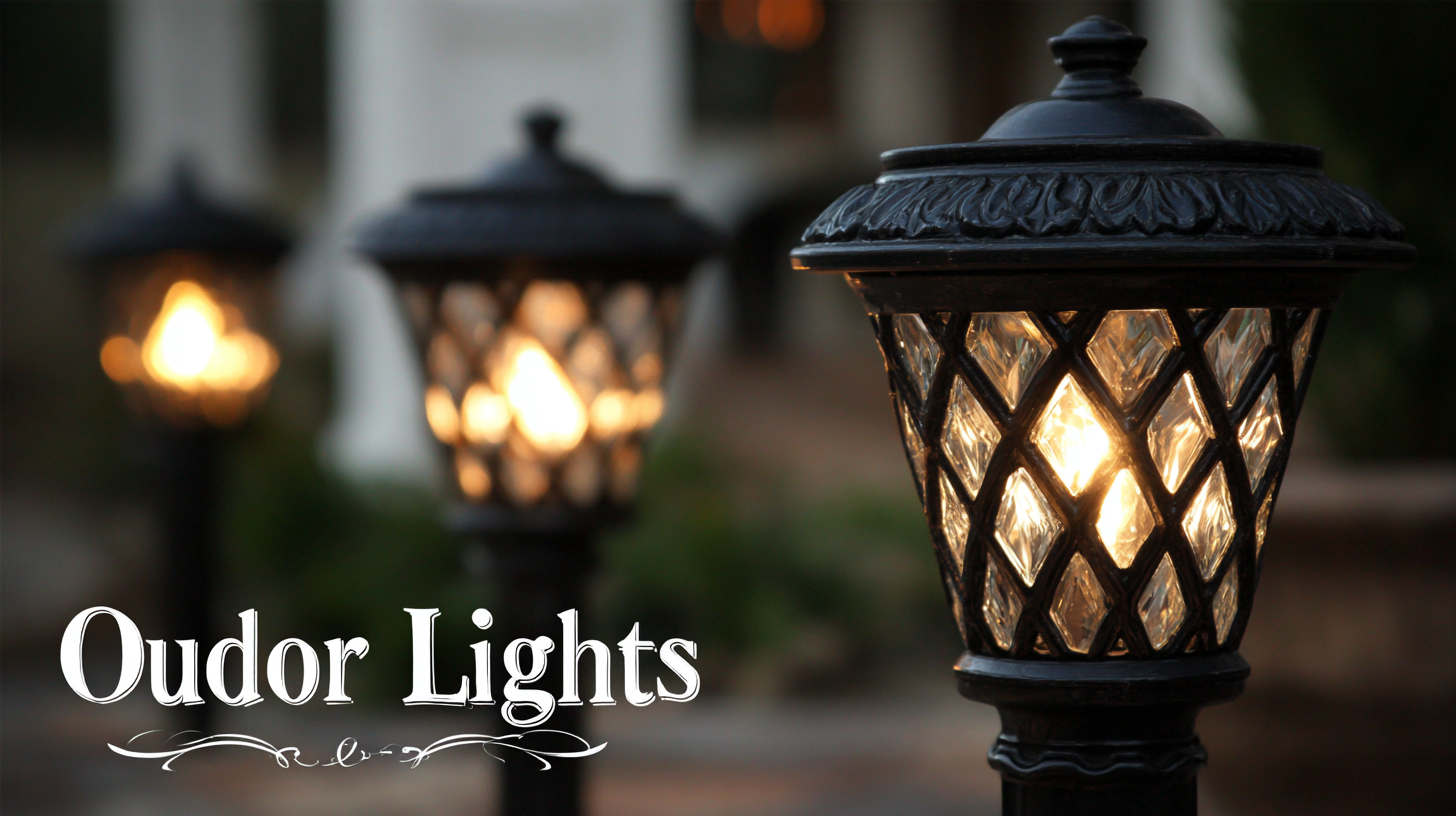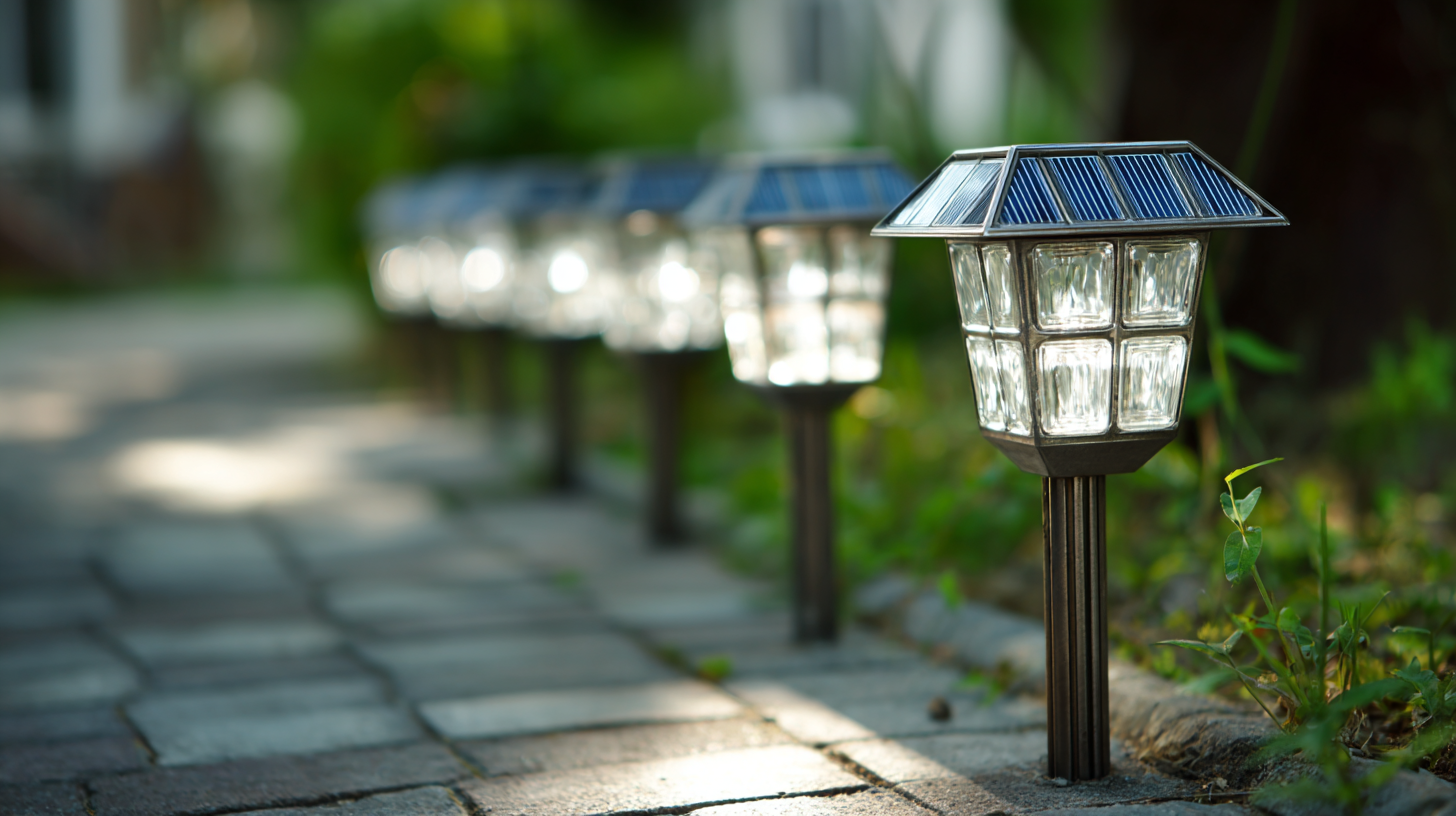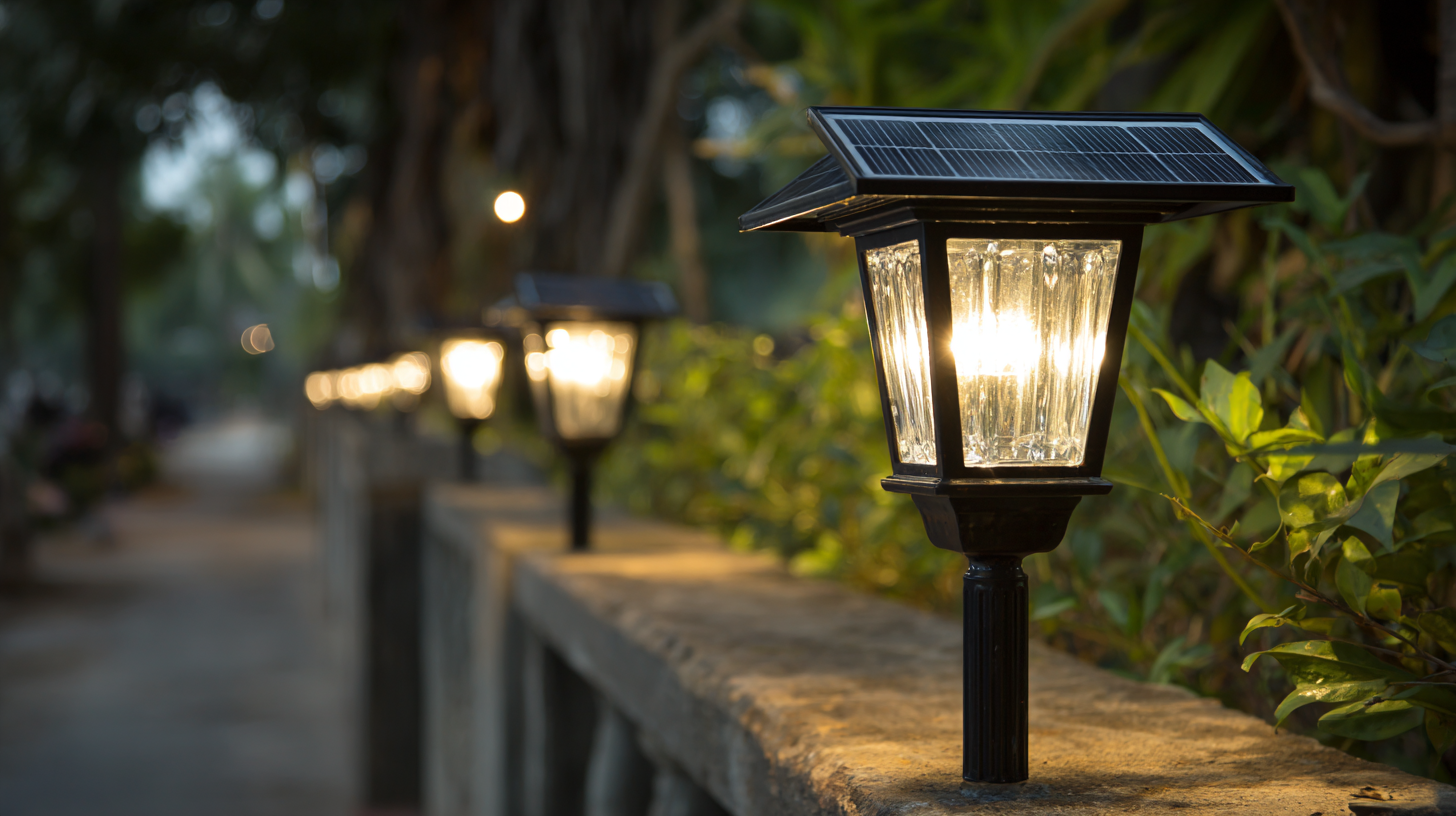Common Issues Faced When Choosing the Best Outdoor Solar Lights for Your Home
 As homeowners increasingly seek sustainable and energy-efficient solutions, outdoor solar lights have emerged as a popular choice for illuminating outdoor spaces. According to the Solar Energy Industries Association, the solar market in the United States has experienced a staggering 167% growth over the past decade, with outdoor solar lights contributing significantly to this trend. However, selecting the best outdoor solar lights can pose several challenges, from determining the appropriate brightness and design to understanding battery capacities and pricing. With the rise in consumer options, identifying high-quality products that meet individual needs becomes crucial. This article will explore common issues faced when choosing outdoor solar lights, helping consumers navigate this rapidly evolving marketplace effectively.
As homeowners increasingly seek sustainable and energy-efficient solutions, outdoor solar lights have emerged as a popular choice for illuminating outdoor spaces. According to the Solar Energy Industries Association, the solar market in the United States has experienced a staggering 167% growth over the past decade, with outdoor solar lights contributing significantly to this trend. However, selecting the best outdoor solar lights can pose several challenges, from determining the appropriate brightness and design to understanding battery capacities and pricing. With the rise in consumer options, identifying high-quality products that meet individual needs becomes crucial. This article will explore common issues faced when choosing outdoor solar lights, helping consumers navigate this rapidly evolving marketplace effectively.
Factors to Consider When Selecting the Right Outdoor Solar Lights for Different Environments
When selecting outdoor solar lights for different environments, several critical factors come into play. First, consider the location and the amount of sunlight received throughout the day. According to the U.S. Department of Energy, solar lights require at least 6-8 hours of direct sunlight to function efficiently. If your garden faces substantial shade from trees or buildings, opt for lights equipped with higher-capacity batteries and solar panels to ensure adequate energy collection.
Another essential factor is the lighting output required for your specific space. For pathways, a lower lumens rating of around 50-100 is sufficient, while driveways might necessitate lights producing 800 lumens or more. It's also noteworthy that higher lumen lights can create a more inviting ambiance, but they may also consume battery life more quickly.
**Tips:** When purchasing solar lights, look for models with adjustable brightness settings to tailor the illumination according to your needs. Additionally, investing in waterproof and durable materials will increase the longevity of your lights, allowing you to enjoy their benefits across all seasons without frequent replacements.
Common Issues Faced When Choosing Outdoor Solar Lights
Understanding the Importance of Lumens and Wattage in Solar Light Performance
When selecting outdoor solar lights for your home, understanding the importance of lumens and wattage is essential for ensuring optimal performance. Lumens measure the brightness of the light emitted by the fixture; higher lumen ratings mean more light output, which is particularly crucial for areas requiring visibility, such as pathways or entrances. If you’re looking for lights to enhance security or illuminate a deck, aim for solar lights with at least 1000 lumens to achieve adequate brightness.
Wattage, on the other hand, indicates the energy consumption of the lights. Solar lights typically use energy from the sun, and their wattage can give insight into their efficiency and energy use during nighttime operation. Efficient solar lights might use lower wattage while still providing sufficient lumens, making them a cost-effective choice. When choosing the right fixtures for your outdoor space, balance between lumens and wattage will help you select a solution that meets both your aesthetic and functional needs without compromising on energy efficiency.

Debunking Myths: Lifespan and Durability of Outdoor Solar Lights in Diverse Weather Conditions
When considering outdoor solar lights, one common concern among homeowners is their lifespan and durability, especially in various weather conditions. Many myths suggest that solar lights perform poorly in inclement weather, leading to hesitance in investment decisions. However, modern advancements in solar technology have made significant strides in enhancing the durability of these lights. Most high-quality outdoor solar lights are designed to withstand heavy rain, snow, and extreme temperatures, ensuring they remain functional regardless of the climate.
Another misconception is that solar lights will only last a season or two, but reputable brands often offer warranties that extend beyond five years, indicating a commitment to quality. The lifespan of these lights heavily relies on the materials used and the quality of solar panels. By investing in well-reviewed solar lights that are built with weather-resistant designs and efficient solar cells, homeowners can enjoy consistent lighting all year round. Embracing these innovations can dispel fears about solar light performance, allowing for a more sustainable and energy-efficient outdoor lighting solution.
The Role of Solar Panel Efficiency in Maximizing Energy Consumption for Outdoor Lighting
When selecting outdoor solar lights, one of the most critical factors to consider is solar panel efficiency. Solar panel efficiency refers to the ability of a solar panel to convert sunlight into usable electricity. According to the National Renewable Energy Laboratory, efficient solar panels can achieve efficiencies upwards of 20% or even higher in some cutting-edge models. This means that for every 100 watts of sunlight, an efficient panel can convert at least 20 watts into usable electricity, significantly impacting the performance and longevity of outdoor lighting fixtures.

Maximizing energy consumption through improved solar panel efficiency not only prolongs the operating time of outdoor lights but also reduces the frequency of battery replacements. A report from the Solar Energy Industries Association shows that the average lifespan of solar panels can exceed 25 years, provided they are of high quality. This durability, coupled with the enhanced energy output from efficient solar panels, can lead to substantial savings on electricity bills while also reducing the carbon footprint of your home. Thus, when choosing solar lights, it's crucial to prioritize models equipped with top-tier solar technology to ensure optimal performance and sustainability.
Evaluating Design Aesthetics and Functionality: Blending Solar Lights with Landscaping
When selecting outdoor solar lights for your home, one of the critical aspects to consider is how well these fixtures blend with your landscaping. The design aesthetics of solar lights can significantly influence the overall look of your outdoor space. Opting for lights that complement the style of your home and garden can enhance visual appeal. For instance, sleek, modern solar lights might work beautifully in a contemporary space, while rustic lanterns can add charm to a traditional garden. This alignment between lighting design and landscape is essential for creating a cohesive outdoor environment.
Functionality is equally important when evaluating solar lights. They should not only look good but also effectively illuminate your outdoor areas. Consider the specific purposes of the lighting—whether it's to highlight pathways, accentuate plants, or provide security. The layout of your landscaping can guide your choice of fixtures, allowing you to select styles that cast light where it’s needed most. Additionally, look for features such as adjustable brightness or motion sensors that enhance usability. By carefully balancing aesthetics with functionality, you can choose solar lights that enhance your home’s exterior while serving practical purposes.
